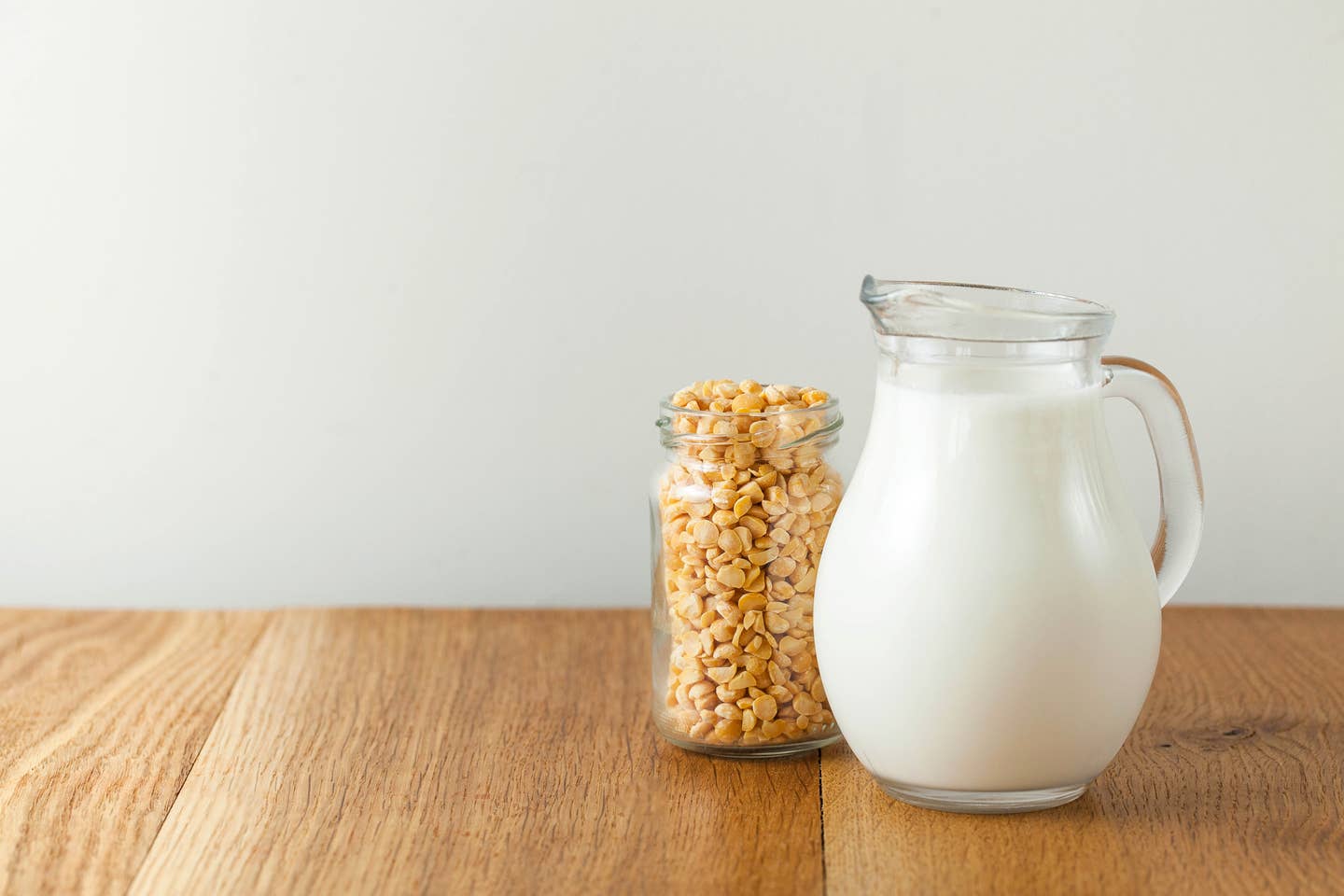
Nestle Launches a New Carbon-Neutral Milk Made From Peas
Watch out Oatly: Nestle just launched a new carbon-neutral pea milk that's looking to conquer the plant-based milk space under the brand Wunda. The innovative milk alternative is sourced from yellow peas and will debut in three flavors: Original, Unsweetened, and Chocolate. The initial launch will roll out in France, the Netherlands, and Portugal over the next month with plans to expand globally. Nestle aims to match oat milk juggernaut Oatly as a competitor, entering the rapidly growing plant-based milk market.
“Plant-based in food and drinks is really on the rise and I think it’s very structural,” Nestle’s Head of Dairy for Europe, Middle East, and North Africa Cedric Boehm said. “I’ve been in business for many years and I’ve never seen a category growing so fast or so strong.”
The company revealed Wunda this week as an expansion of its plant-based sector. Nestle announced that its 2020 plant-based dairy sales reach double-digit growth, marking up to $109.41 million. Nestle hopes that its brand will be propelled forward with the quickly accelerating plant-based market. A report claims that the global vegan market is set to exceed $31 billion by 2024.
The Swiss company claims that its pea milk will be superior to its rival oat, soy, and almond milk, revealing that yellow peas will provide a high protein content comparable to dairy milk. Nestle champions pea milk as a carbon-neutral alternative that will contain high amounts of calcium, protein, and fiber. Although details about plant-based milk remain limited, a Market Study Report predicts that Nestle’s pea milk will see significant growth due to its nutritional value and low environmental footprint.
“We created a new brand for this proposition so we need to have high expectations,” Boehm said. “We wouldn’t go [into this market] if we didn’t believe that we were in a position to win.” He continued by hinting that the company could see Wunda expanding beyond pea-based products to more plant-based food areas.
Amid environmental controversy, Nestle is doubling down to combat climate change and reverse environmental damages. The company has a checkered history regarding environmental and human rights issues. Two weeks ago, California sent Nestle a cease-and-desist order following an investigation from 2017 that discovered the company was siphoning water from the San Bernadino forest. While Califonia is experiencing a historic drought, many criticized Nestle’s actions, but now aims to redefine its company policy to better reflect environmental needs.
“If we are to continue to grow sustainably we must ensure we use the planet’s resources wisely,” a new statement on Nestle’s website reads. “We want our products to not only be tastier and healthier but also better for the environment. Our 2030 ambition is to strive for zero environmental impact in our operations.”
Nestle’s Wunda brand will be completely carbon neutral: The carbon footprint has been certified by an advisory group called the Carbon Trust, showcasing the company’s dedication to its new environmentally conscious mission. Wunda pea milk will arrive in stores this month, and the world will be watching to see if this alternative milk will rival the taste and popularity of oat milk frontrunner Oatly.
More From The Beet






